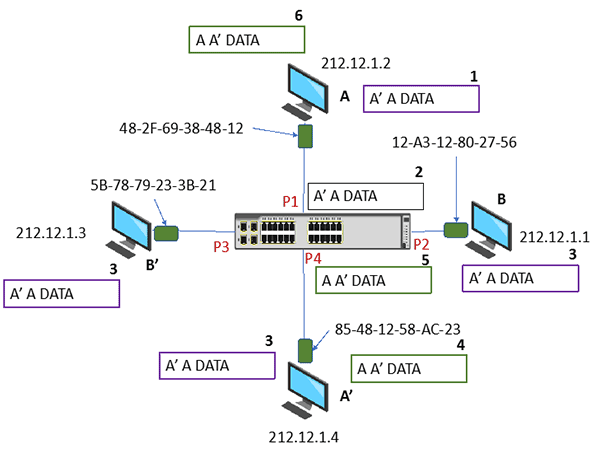Ethernet switch
An Ethernet switch is a link-layer device which stores and forwards Ethernet frames. It examines incoming frame’s MAC address, selectively forwards frame to one-or-more outgoing links when frame is to be forwarded. Switches do not need to be configured, these are plug-and-play and self-learning devices. Self-learning switches can be connected together and perform as a unique switch.

Figure 26 This is an example of self-learning in a switch. The switch table is initially empty. A sends a frame to A’.
When switch receives frame A, it learns A-P1, then floods the ports. A’ responds and then the switch learns A’-P4. In this case the switch selectively sends the response frame to port 1.
-
Project
This resource was developed as part of an Erasmus+ project, funded with support from the European Commission under grant agreement 2016-1-SE01-KA203-22064.
The project was a collaboration between:
This resource has been released under Creative Commons license CC-BY-SA 4.0.
Contact
If you would like more information on this resource please contact:
- Academic content – The University of Alcalá (https://www.uah.es/en/)
- Technical resource development – The University of the Highlands and Islands Educational Development Unit - EDU (edu@uhi.ac.uk)
Disclaimer
Except where otherwise noted, this website is licensed under Creative Commons license CC-BY-SA 4.0. All images used under permission remain the copyright of the license holder.
PDF
Download a copy of this resource in PDF format.
You can also print individual pages by printing directly from the browser.
×






